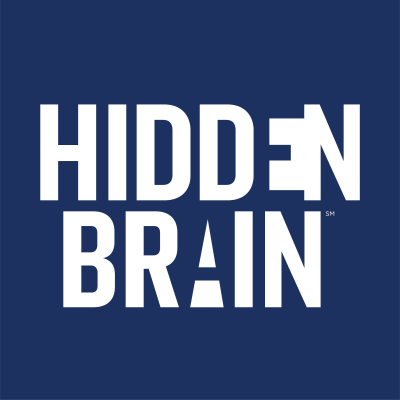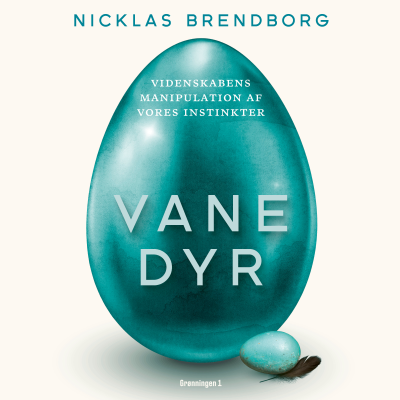
Hidden Brain
Podcast af Hidden Brain, Shankar Vedantam
Why do I feel stuck? How can I become more creative? What can I do to improve my relationships? If you’ve ever asked yourself these questions, you’re not alone. On Hidden Brain, we help you understand your own mind — and the minds of the people around you. (We're routinely rated the #1 science podcast in the United States.) Hosted by veteran science journalist Shankar Vedantam.
Prøv gratis i 60 dage
99,00 kr. / måned efter prøveperiode.Ingen binding.
Alle episoder
554 episoderAs we go through life, we’re constantly trying to figure out what other people are thinking and feeling. Psychologist Liane Young [https://www.bc.edu/bc-web/schools/mcas/departments/psychology/people/faculty-directory/liane-young.html] says this ability to assess other people’s thoughts is an extraordinary feat of cognition. This week, in a favorite episode from our archives, we explore this mental superpower — and how it can lead us astray. In our conversation with Liane Young, we explore: *The uniquely human ability to think about the minds of other people, which scientists refer to as "theory of mind." *How and when young children develop this ability to intuit what's happening in other people's minds. *Why our understanding of other people's minds affects our moral judgments — and how those judgments can be disabled. *How misreading another person's intentions can affect our lives in both small and significant ways. Then, in the second part of this week's show, we welcome back researcher Fred Luskin [https://greatergood.berkeley.edu/profile/fred_luskin], who responds to listeners' questions about grudges. If you missed the original conversation with Fred Luskin, listen to our episode No Hard Feelings [https://hiddenbrain.org/podcast/no-hard-feelings/].
As you go about your day, you likely interact with family, friends and coworkers. These relationships can help you feel cared for and connected. But what if there’s a whole category of people in your life whose impact is overlooked? Today, in a favorite episode from our archives, psychologist Gillian Sandstrom [https://profiles.sussex.ac.uk/p555105-gillian-sandstrom] reveals some simple ways to make your life a little more joyful and maybe even a little less lonely. Then, we talk with researcher Erica Bailey [https://haas.berkeley.edu/faculty/erica-r-bailey/], who responds to listeners' questions about authenticity and how to reveal our true selves to the people around us. In this episode you'll learn: * The sociological concept of "weak" and "strong" ties, and the important roles they play in our lives. * How "weak ties" contribute to our happiness. * How to talk to strangers — including how to start, maintain, and end a conversation. * How to decrease feelings of loneliness and increase feelings of connectivity in your daily life. If you enjoyed today's conversation with Gillian Sandstrom, be sure to check out these other Hidden Brain episodes: You 2.0: The Gift of Other People [https://hiddenbrain.org/podcast/you-2-0-the-gift-of-other-people/] How Others See You [https://hiddenbrain.org/podcast/mind-reading-how-others-see-you/]
When we head into a negotiation — whether we're asking for a raise or trying to get our spouse to do the dishes — our focus is usually on getting the other person to agree to our preferred outcome. What we don't focus on are our own biases and blind spots. Behavioral scientist Max Bazerman [https://www.hbs.edu/faculty/Pages/profile.aspx?facId=6420] studies the theory and practice of negotiation, and he says that paying attention to these biases can help us to craft better deals. Do you have a follow-up question after listening to this episode? If you'd be comfortable sharing your question with the Hidden Brain audience, please record a voice memo on your phone. Email it to us at ideas@hiddenbrain.org [ideas@hiddenbrain.org]. Use the subject line “negotiation.” Thanks!
All of us want to "seen" by the people around us. We want to be recognized as unique individuals. Yet the experience of being seen in this way can be dispiritingly rare. This week, we kick off our "Relationships 2.0" series by talking with researcher Allison Pugh [https://www.allisonpugh.com/] about the psychological benefits of what she calls "connective labor." She explains why this labor is often overlooked, and how to cultivate the superpower of making other people feel seen. In this episode, you'll learn: *The definition of connective labor, and why this skill is like "engine grease" for our personal and professional relationships. *Why connective labor is vital to success in a surprisingly broad array of careers. *The gender stereotypes around connective labor, and why these stereotypes overlook the role that men play as connectors. *How connective labor affects our mental and physical health. *How connective labor by teachers may affect students' ability to learn. *How to slow down in interactions with other people and explore the emotional context behind their words. If you have a follow-up question for Allison Pugh after listening to this episode, and you’d be willing to share it with the Hidden Brain audience, please record a voice memo on your phone. Once you’ve done so, email it to us at ideas@hiddenbrain.org. Use the subject line “connection.” And thanks for listening!
Often in life, we find ourselves wrestling with a decision. But in running these mental calculations, there's something we rarely consider about the future: we might not be the same person when we get there. This week, philosopher L.A. Paul [https://psychology.yale.edu/people/la-paul] explores how life-altering events reshape who we are. Want more of our work on understanding your future self? Give these Hidden Brain episodes a listen: https://hiddenbrain.org/podcast/you-2-0-how-to-see-yourself-clearly/ [https://hiddenbrain.org/podcast/you-2-0-how-to-see-yourself-clearly/] https://hiddenbrain.org/podcast/you-2-0-decide-already/ [https://hiddenbrain.org/podcast/decide-already/] https://hiddenbrain.org/podcast/you-2-0-your-future-is-now/ [https://hiddenbrain.org/podcast/you-2-0-your-future-is-now/] https://hiddenbrain.org/podcast/the-ventilator/ [https://hiddenbrain.org/podcast/the-ventilator/] And for the latest insights about human behavior, delivered straight to your inbox, sign up for the weekly Hidden Brain newsletter! Each issue brings you the latest research, along with a brain teaser and a moment of joy. You can read and subscribe here: https://news.hiddenbrain.org/ [https://news.hiddenbrain.org/]
Prøv gratis i 60 dage
99,00 kr. / måned efter prøveperiode.Ingen binding.
Eksklusive podcasts
Uden reklamer
Gratis podcasts
Lydbøger
20 timer / måned



















